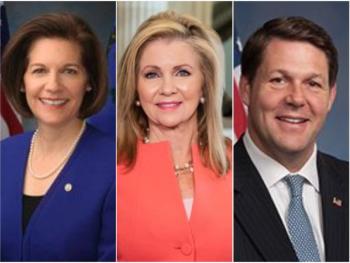
Hospitals cheer court ruling on 340B drug payments: ‘An important victory’
A judge has directed the U.S. Department of Health and Human Services to halt cuts to the drug program for 2022. Hospitals have battled the government over the program for years.
Even after winning a U.S. Supreme Court case, hospitals have been waiting to see bigger reimbursements in a federal drug pricing program.
Now, the wait may be over soon
A federal judge has found the U.S. Department of Health and Human Services must end its policy of reduced Medicare reimbursements in the 340B drug pricing program for 2022. The program offers discounts on some outpatient drugs for hospitals that serve a high percentage of patients in underserved communities.
The U.S. Supreme Court
However, the high court sent the case to the lower federal court for a remedy. The high court case focused on the years 2018 and 2019, but hospitals have fumed because the Medicare cuts have continued through 2022.
U.S. District Judge Rudolph Contreras of the District of Columbia issued a
The judge said a ruling on the other years would come at a later date.
Still, hospital advocacy organizations cheered the ruling. Melinda Hatton, general counsel and secretary of the American Hospital Association, said that the order to restore payments for 2022 is much-needed good news for hospitals. The American Hospital Association has been pressing the government to repay health systems.
“Halting these cuts will help 340B hospitals provide comprehensive health services to their patients and communities,” Hatton said in a statement.
Seeking payments immediately
Hospitals participating in the 340B program have said the reductions in drug payments are hurting their ability to provide care in underserved communities in urban and rural areas. Hospital leaders also said the reduced rates are adding to their already troubled finances.
“We continue to urge the Administration to promptly reimburse all the hospitals that were affected by these unlawful cuts in previous years and to ensure the remainder of the hospital field is not penalized for their prior unlawful policy, especially as hospitals and health systems continue to deal with rising costs for supplies, equipment, drugs and labor,” Hatton said in a statement.
Hospital groups have said they don’t want to see cuts in other areas to offset the higher 340B payments.
Maureen Testoni, president and CEO of 340B Health, an advocacy group for hospitals in the drug program, praised the judge’s decision.
“This is an important victory for 340B hospitals that have been fighting these unlawful Medicare cuts for nearly six years,” Testoni said in a statement. “The Centers for Medicare & Medicaid Services (CMS) has the clear responsibility to restore the appropriate payments for 340B drugs immediately, and now a federal court has ordered it to do so without delay.”
Hospitals have been battling the federal government for years over the 340B program. While the reduced rates began under Trump, President Biden’s administration maintained the policy.
The health department had sought more time to restore the rates. But in his ruling Wednesday, Contreras said that was not an option, especially since the department “admits” that the rate is “unlawful.” The judge also noted that the health department plans on paying “the proper reimbursement rate for the 2023 year.”
“HHS should not be allowed to continue its unlawful 340B reimbursements for the remainder of the year just because it promises to fix the problem later,” Contreras said.
Hospitals have maintained the 340B program provides essential help in serving disadvantaged patients and communities. In the Supreme Court case, the AHA and other hospital groups said the reduced payments could force providers to reduce some services in underserved communities.
Some oppose higher 340B rates
Still, critics argue the 340B program has grown beyond its initial purpose. The program has grown from $9 billion in 2014 to $38 billion in 2020.
Some also say hospitals are not passing on sufficient discounts to patients. The Alliance for Integrity and Reform of 340B also has said
The Community Oncology Alliance has argued against the health department’s plans to increase payment rates in the 340B program in 2023. Small hospitals, including some rural hospitals, along with independent practices, will pay the price if rates rise in 2023, the alliance contends.
The group said the higher rates for the 340B program will come at the expense of other hospitals, due to federal spending rules requiring the changes to be budget neutral.
““This is a classic example of the government kicking independent practices and small hospitals while they are down,” Ted Okon, executive director of the Community Oncology Alliance, said in a
Hospitals in the 340B program have faced another challenge over the last year as pharmaceutical companies reduce their discounts in the program. More than a dozen major pharmaceutical companies, including Johnson & Johnson, AstraZeneca, Merck, and Pfizer, have said they are restricting some discounts.
Hospitals have said the policy from the drug companies






















































































